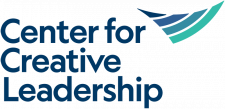- Innovation
Innovation Leadership for Uncertain Times
6 Skills of the Innovative Thinker
Remember the days when strategy was king? When leadership was defined by forecasting? And successful management meant guiding a business within a set framework?
If you haven’t realized it already, the days of looking into the crystal ball to plan for the future are history.
Today, nothing is certain. But uncertainty doesn’t necessarily mean failure. Instead, uncertainty challenges us to find new ways of thinking. Instead of using a crystal ball for planning, managers are turning toward what the Center for Creative Leadership (CCL®) calls Innovation Leadership.
A Change in the Way We Think
In the past, leaders used a business thinking approach to problem solving. This approach was based on research, formulas and logical facts and favored deductive and inductive reasoning. The business thinking leader made quick decisions and was always on the lookout for the right answer.
Unlike business thinking, innovative thinking turns away from past experiences and toward how to get to a desired future state. Instead of looking for right or wrong answers, the innovative thinker searches for a better way by exploring multiple possibilities.
The Six Skills of the Innovative Thinker
Innovative thinkers exemplify six essential skills that open the door to new approaches and solutions:
- Paying Attention: Instead of basing decisions on first impressions and assumptions, the innovative thinker excels at seeing what goes unnoticed. This means looking for details and seeing new patterns. It requires you to slow down, deliberate and examine multiple points of view.
- Personalizing: Innovative thinkers tap into their own knowledge and experiences, allowing them to understand the customer in a deeper, more personal way. This opens the mind to new perspectives and leads to the ideas, patterns and insights that fuel innovation.
- Imaging: Imagery helps make sense out of vast amounts of complex information. Pictures, stories, impressions and metaphors help the innovative thinker describe situations, construct ideas and communicate effectively.
- Serious Play: Innovation requires bending the rules, branching out and having fun. Some of the most innovative ideas happen through experimentation, improvisation and exploration.
- Collaborative Inquiry: There’s no room for a lone wolf in an innovative environment. Insights come through the thoughtful, non-judgmental sharing of ideas. The focus is on asking searching questions, exercising critical thinking and not expecting immediate answers.
- Crafting: To see the whole as inclusive of opposition and open to multiple solutions, innovative thinkers avoid an either/or mindset. Crafting is about making intuitive connections among seemingly unrelated information, shaping order out of chaos.
Getting Started
Everyone has the ability to be an innovative thinker – it’s the getting started that can be intimidating. Here are three tips to start you down the road of innovative thinking:
- Reframe the Challenge: The problem we choose to focus on often isn’t the most important. By looking at the problem in a different way, you gain clarity and insight – the first step to uncovering new places to innovate.
- Focus on the Customer Experience: Customer service begins with a first-hand understanding of what is going on in the customer’s life and how it is affected by your product, process or service. This means getting out and watching your customers work, live and play.
- Practice Rapid Prototyping: Innovation is hands-on. Rapid prototyping, or the building and testing of something new, jumps past the hurdles of information overload and endless analysis and provides essential feedback and knowledge.
A Call for Innovation Leadership
Businesses are feeling the limits of traditional thinking. The burdens of the economic crises and widespread uncertainty have leaders everywhere looking for new ways forward. Innovation Leadership is the key to finding what’s new, what’s better and what’s next.
Are you ready to take the next steps towards building a leadership culture that drives innovation?
Innovation at CCLPerforming innovative research — and shaping it into products that make you and your organization more effective — has been at the heart of CCL's work for more than four decades.
|
A top-ranked, global provider of leadership development. By leveraging the power of leadership to drive results that matter most to clients, CCL transforms individual leaders, teams, organizations and society.
ARTICLES YOU MIGHT LIKE
VIEWPOINT
Cognitive neuroscientist, Lynda Shaw, explains how to understand and support intrapreneurs
DEVELOPING LEADERS QUARTERLY MAGAZINE AND WEEKLY BRIEFING EMAILS


































